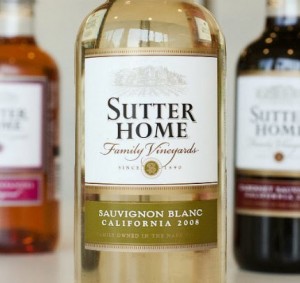 Top Class Action Lawsuits
Top Class Action Lawsuits
Match.com has managed to light a fire under one customer’s arse—so much so that said person has filed a proposed consumer fraud class action alleging the dating site is in violation of state law for failing to inform clients that they can end their service agreements by sending a letter to the company. Well, their tagline says “Start your love story”…kinda the Hotel California (all due respect to the Eagles) of taglines there… And who knew?
Filed in California federal court by Plaintiff Zeke Graf, the Match.com lawsuit alleges that in 2012, when Graf joined Match.com, the company’s contract did not cite a notice required by California law stating that new customers can cancel their contracts within three business days by sending a letter.
Additionally, Graf’s complaint maintains that a consumer can cancel their contract with a dating service at any time, should it fail to comply with the law. Match’s contract stated otherwise, according to the suit.
“In fact, defendant’s contract explicitly stated that plaintiff’s subscription with defendant would remain active until the end of plaintiff’s subscription period following plaintiff’s cancellation of said dating service contract,” the complaint states.
Therefore, Graf contends, Match.com is forcing Californian daters to enter into contracts that require them to waive protections granted under state law, and this has been taking place for at least the past four years.
According to the complaint, through its contract practices, Match.com is running a scheme to make “money from California consumers through false, deceptive, and misleading means.”
“Defendant had other reasonably available alternatives to further its legitimate business interest, other than the conduct described herein, such as adequately disclosing the notice of consumers’ rights to cancel contacts with defendant,” the complaint states.
Heads up all you unhappy matcher.commers….Graf seeks to represent a class of California consumers who bought subscriptions to Match.com during the past four years and whose contracts failed to include their cancellation notice rights.
The case is Graf v. Match.com LLC, case number 2:15-cv-02913 in the U.S. District Court for the Central District of California.
As if filing your taxes wasn’t painful enough, now there are allegations that Intuit Inc, the software run by Turbo Tax, failed to protect people from, yes you guessed it, data breaches. In fact, a putative class action was filed this week against Intuit Inc alleging the maker of the tax-preparation software was negligent in failing to protect them from identity theft by not safeguarding sensitive personal data. The complaint, filed by Turbo Tax users, claims Intuit’s actions resulted in billions of dollars in tax fraud.
Specifically, the Turbo Tax lawsuit, filed by lead plaintiffs Christine Diaz and Michelle Fugatt, claims Intuit’s lax controls placed revenue over ethics, leaving customers susceptible to third-party tax fraud. Further, the complaint states the despite a recent surge in fraudulent tax returns and massive data breaches, Intuit failed to correct the problem or properly report fraudulent tax filings to the IRS for fear of losing revenue.
“Plaintiffs allege that defendant’s negligent mishandling of fraudulent tax filings facilitated the theft of billions of tax dollars by cybercriminals by allowing thousands of fraudulent tax returns to be filed through use of its software,” the complaint states.
One month ago, Intuit stated it had received inquiries from the US Department of Justice and the Federal Trade Commission investigating earlier reports that 19 states had identified fraudulent returns using TurboTax software.
In February, Intuit temporarily stopped its state e-filing return program following announcements by Alabama, Minnesota and Utah departments of revenue that they had flagged TurboTax returns because of fraudulent activity.
According to the complaint, Intuit controls about 60 percent of the self-preparation software market. Terrific.
Diaz, who used TurboTax for a 2010 federal return and Ohio state return, learned in January 2015 that fraudulent state tax filings had been filed, purportedly on her behalf, in Michigan, Missouri, Ohio and Oklahoma, plus a federal filing with the IRS.
According to the lawsuit, Diaz received a $242.75 bill from TurboTax for e-flings that were allegedly not hers. She claims she had not entered any information in TurboTax’s system since 2011.
The complaint goes on to state that Intuit advised Diaz’s husband that fraudulent filings were made on her behalf but the company had not followed up to resolve the matter. Diaz is no longer eligible for electronic filing of her tax returns and is subject to ongoing credit monitoring.
According to the complaint, the exact number of plaintiffs is unknown but may be in the thousands as fraudulent tax filings in TurboTax customers’ names were generated and potentially millions of TurboTax customers’ data has been accessed.
The complaint, which accuses Intuit of violating California’s Unfair Competition Law and Customer Records Act, as well as negligence and breach of contract, seeks damages as well as an injunction ordering Intuit to step up its security procedures, among other relief.
“Rather than protecting customers’ personal and financial information by implementing stricter security measures, TurboTax has instead knowingly facilitated identity theft tax refund fraud by allowing cybercriminals easy access to its customers’ most private information,” the complaint states.
FYI—The case is Christine Diaz and Michelle Fugatt et al v. Intuit Inc., case number 5:15-cv-01778, in U.S. District Court for the Northern District of California.
Top Settlements
You delay you pay… Bingo! A $512 million settlement agreement has been reached in an antitrust lawsuit pending against Cephalon Pharmaceuticals. The lawsuit alleged the defendant delayed the introduction of a generic version of the drug Provigil into the market. Nice.
According to court documents, the agreement was reached between the class of direct purchasers and defendants Cephalon, Teva Pharmaceutical Industries Ltd., Teva Pharmaceuticals USA Inc. and Barr Pharmaceuticals Inc. The other defendants in the case, Mylan Laboratories Inc. and Ranbaxy Laboratories Ltd., were not included in the settlement.
In the lawsuit, plaintiffs claimed that the settling defendants, referred to in the agreement as the Cephalon defendants, “violated federal antitrust law by wrongfully delaying the introduction of generic versions of the prescription drug Provigil (modafinil), a drug indicated for the treatment of certain sleep disorders.” The defendants did not admit liability in the agreement.
The class was defined as “all persons or entities in the United States and its territories who purchased Provigil in any form directly from Cephalon at any time during the period from June 24, 2006, through August 31, 2012.”
The agreement further states that up to 33-and-a-third percent of the overall payout will be sought as compensation. Incentive awards of $100,000 per named plaintiffs, specifically, King Drug Co. of Florence, Rochester Drug Cooperative Inc. and Burlington Drug Company Inc., and $50,000 each for Meijer Distribution Inc. and SAJ Distributors Inc.
Hokee Dokee- That’s a wrap folks…See you at the Bar!



